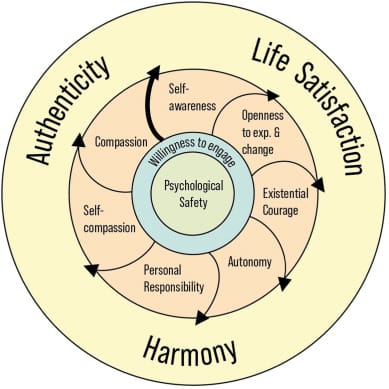Roz, the hero of Peter Brown’s The Wild Robot, represents a significant excursion of self-improvement through her readiness to learn and adjust. As a robot intended for effectiveness and errand execution, Roz’s startling drenching into the regular world moves her to rise above her underlying programming. Her encounters offer significant bits of knowledge into the extraordinary force of learning and its part in self-improvement.

Adaptability and Integration
After ending up abandoned on a far off island, Roz stands up to a climate incomprehensibly not quite the same as her planned functional setting. Her underlying connections with the island’s natural life are set apart by misconception and dread. In any case, Roz’s choice to notice and gain from the creatures around her implies a critical shift. By copying their ways of behaving and understanding their correspondence, she continuously coordinates into the biological system, encouraging shared trust and collaboration. This versatility highlights the significance of receptiveness to new encounters and the eagerness to step past one’s usual range of familiarity chasing self-awareness.
Emotional Development and Empathy
In spite of her mechanical nature, Roz’s process is described by the improvement of close to home profundity and compassion. Her choice to really focus on a stranded gosling, whom she names Brightbill, fills in as a demonstration of her ability for empathy. Through supporting Brightbill, Roz encounters the difficulties and prizes of being a parent, shaping a bond that rises above her counterfeit beginnings. This relationship represents that self-improvement is profoundly interwoven with the capacity to shape significant associations and grasp the feelings of others.

Overcoming Prejudice and Building Community
At first, the island’s creature occupants see Roz as a danger, epitomizing the obscure and the mechanical. Roz’s obligation to learning their methodologies and contributing decidedly to the local area steadily modifies their discernments. She aids different undertakings, offers assurance, and offers information, showing her worth past her mechanical outside. This development from pariah to fundamental local area part features the job of learning in conquering bias and building agreeable connections.
Self-Discovery and Purpose
Through her encounters, Roz leaves on an excursion of self-disclosure, scrutinizing her motivation past her underlying programming. Her connections with the regular world and the connections she frames lead her to examine existential inquiries, obscuring the line between man-made reasoning and aware being. Roz’s ability to learn and adjust empowers her to rethink her character, recommending that self-improvement includes consistent self-reflection and the mental fortitude to reclassify oneself notwithstanding new encounters.
Resilience in the Face of Adversity
Roz’s process is full of difficulties, from enduring cruel natural circumstances to shielding her embraced child from hunters. Her versatility is reinforced by her ability to gain from every obstruction, utilizing her encounters to foster

inventive arrangements. This strength, filled by a promise to learning, highlights that self-improvement is much of the time a result of constancy and the capacity to adjust notwithstanding misfortune.
Conclusion
Roz’s readiness to learn and her resulting self-improvement act as a convincing story on the groundbreaking force of flexibility, sympathy, and strength. Her process represents that self-improvement isn’t restricted by one’s beginnings or introductory plan yet is a consistent interaction formed by encounters, connections, and the mental fortitude to embrace change. Roz’s story urges perusers to stay open to learning, to look for figuring out past shallow contrasts, and to perceive the potential for development intrinsic in each person.